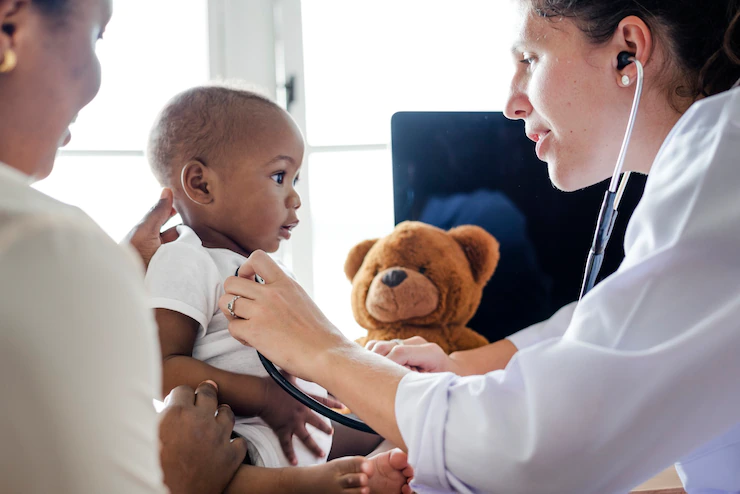As a parent, one of the most important things you can do to safeguard your child’s health is to ensure they receive the necessary vaccines. Vaccinations protect children from a range of potentially life-threatening diseases and help to create a healthier future. In South Africa, there is a recommended immunization schedule that outlines the vaccines your child should receive at specific ages. Let’s explore the immunization schedule for South African infants and the vaccines designed to protect your child.
Birth to 6 Weeks:
At birth, your child will receive the Bacillus Calmette-Guérin (BCG) vaccine, which helps prevent tuberculosis (TB). TB is a contagious disease that primarily affects the lungs and can be severe in infants.
6 Weeks:
At six weeks, your child will receive their first set of vaccines, including:
- Oral Polio Vaccine (OPV): Protects against polio, a highly infectious viral disease that can lead to paralysis or even death.
- Pentavalent Vaccine: Provides protection against several diseases, including diphtheria, tetanus, pertussis (whooping cough), hepatitis B, and Haemophilus influenzae type b (Hib). Diphtheria, tetanus, and pertussis are serious bacterial infections, while hepatitis B is a viral infection that affects the liver. Hib can cause severe infections such as meningitis and pneumonia.
- Pneumococcal Conjugate Vaccine (PCV): Guards against pneumococcal diseases, such as pneumonia, meningitis, and sepsis, caused by the bacterium Streptococcus pneumoniae.
10 Weeks:
At ten weeks, your child will receive a second dose of the vaccines mentioned above: OPV, Pentavalent, and PCV.
14 Weeks:
At fourteen weeks, your child will receive the third dose of OPV, Pentavalent, and PCV.
9 Months:
At nine months, your child will receive several vaccines to further protect them against infectious diseases, including:
- Measles, Mumps, and Rubella (MMR) Vaccine: Provides immunity against measles, mumps, and rubella, which are highly contagious viral diseases. Measles can cause severe complications, including pneumonia and encephalitis.
- Vitamin A Supplement: Essential for good vision and overall growth and development.
12 Months:
At twelve months, your child will receive:
- Hepatitis A Vaccine: Protects against hepatitis A, a viral infection that affects the liver and can cause jaundice, fatigue, and abdominal pain.
- Booster doses of the following vaccines: OPV, Pentavalent, and PCV.
18 Months:
At eighteen months, your child will receive:
- Booster doses of the MMR and the fourth dose of PCV.
- Varicella (Chickenpox) Vaccine: Guards against varicella-zoster virus, which causes chickenpox. Chickenpox is highly contagious and can lead to complications, especially in older children and adults.
6 Years:
At six years, your child will receive:
- Second dose of the measles-containing vaccine (either MMR or MMRV).
- Second dose of the varicella vaccine.
Throughout Childhood:
In addition to the vaccines mentioned above, there are also other vaccines recommended for children in South Africa. These include the annual influenza vaccine, which helps protect against seasonal flu, and the Human Papillomavirus (HPV) vaccine for girls and boys to prevent HPV infections that can lead to cervical and other cancers.
It is important to note that the immunization schedule may vary slightly, and it is crucial to consult with your child’s healthcare provider to ensure they receive the appropriate vaccines at the right time. Vaccinations are generally provided free of charge at public healthcare facilities in South Africa, making them accessible to all.
By following the recommended immunization schedule, you can provide your child with the best protection against vaccine-preventable diseases. Vaccines not only protect your child but also contribute to community immunity, preventing the spread of infectious diseases in the population. Remember, prevention is always better than cure, and immunization plays a vital role in keeping your child healthy and safe.










